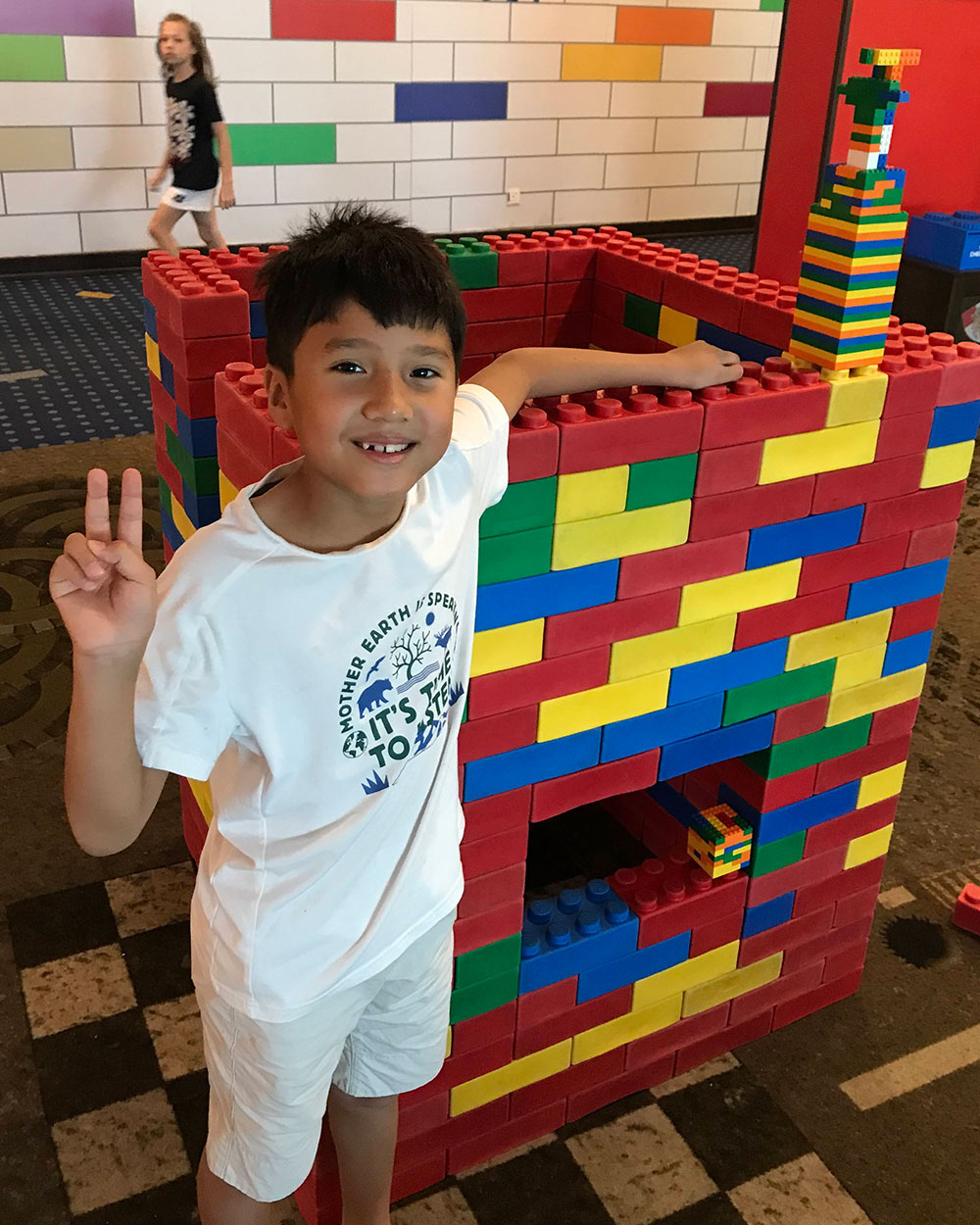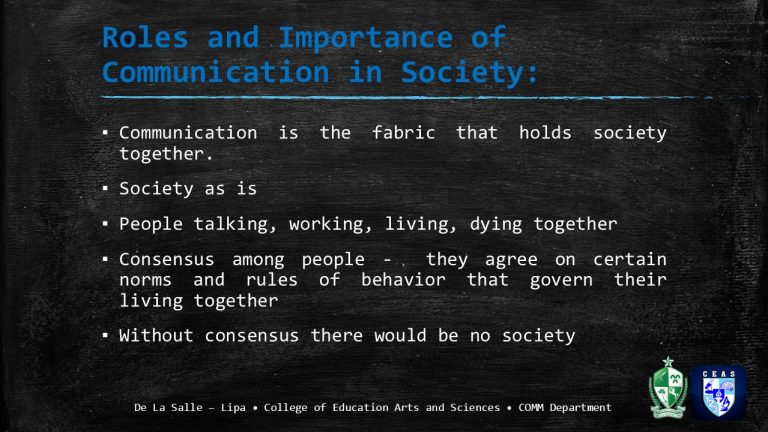How to Teach Public Speaking to Kids?
To teach public speaking to kids, focus on building their confidence and providing practical opportunities for them to practice speaking in front of others. This can be done through activities such as storytelling, role-playing, and public speaking games.
Additionally, creating a supportive and positive environment where kids can feel comfortable expressing themselves is essential.

Credit: www.planetspark.in
Introduce Public Speaking In A Child-Friendly Way
Discover a child-friendly approach to teaching public speaking skills, empowering kids to confidently express themselves through effective communication. With engaging activities and tailored strategies, children can develop the art of public speaking in a fun and supportive learning environment.
Importance Of Public Speaking For Kids:
- Public speaking skills are crucial for kids as they build confidence, boost communication abilities, and enhance critical thinking.
- Developing public speaking skills at an early age prepares kids for academic presentations, future career opportunities, and social interactions.
Create A Safe And Supportive Environment:
- Foster a positive atmosphere where kids feel comfortable expressing themselves and making mistakes.
- Encourage open communication and active listening to cultivate a supportive environment.
- Provide constructive feedback to help kids improve their speaking skills and build their confidence.
Engage Kids In Fun Activities To Enhance Speaking Skills:
- Utilize storytelling sessions to develop language proficiency and engage kids’ imagination.
- Organize show-and-tell sessions where children share interesting objects or experiences with their peers, enhancing their speaking skills.
- Conduct role-playing activities to help kids practice speaking in different scenarios and build confidence in public speaking.
- Encourage participation in debates or mock speeches to develop critical thinking, logical reasoning, and persuasive communication skills.
Remember, public speaking should be introduced in a child-friendly way, keeping the sessions interactive, enjoyable, and tailored to their age group. By creating a safe environment and incorporating engaging activities, you can effectively teach public speaking skills to kids and empower them for a lifetime.
Incorporate Speaking Exercises Into Regular Curriculum
Incorporate speaking exercises seamlessly into the regular curriculum to teach public speaking to kids effectively. This approach ensures that children develop confidence, communication skills, and the ability to express their ideas clearly while engaging in regular classroom activities.
Public speaking is an essential skill for kids to develop as it promotes effective communication and boosts their confidence. By incorporating speaking exercises into the regular curriculum, teachers can provide students with ample opportunities to practice and refine their public speaking skills.
Here are some effective strategies to integrate public speaking into classroom activities:
- Group discussions and presentations: Encourage students to actively participate in class discussions and presentations. Assign group projects that require students to present their findings or ideas to the class. This fosters collaboration, critical thinking, and speaking skills.
- Debates: Organize structured debates on various topics to enhance students’ research, analytical, and persuasive speaking abilities. Divide students into teams and assign them different viewpoints to argue. This stimulates critical thinking and teaches students how to construct convincing arguments.
- Classroom speeches: Allocate time for students to deliver speeches on relevant topics. This allows them to practice organizing their thoughts, presenting ideas coherently, and engaging their audience. Provide constructive feedback to help them improve their delivery and presentation skills.
- Impromptu speaking practice: Create opportunities for impromptu speaking exercises. Assign random topics or scenarios for students to speak on the spot. This helps them think quickly, organize their thoughts, and communicate effectively without prior preparation.
- Role plays and skits: Incorporate role plays and skits into curriculum activities to enhance students’ communication and presentation skills. Assign specific roles and scenarios for students to act out, allowing them to practice public speaking in a fun and interactive way.
- Classroom discussions with respectful feedback: Foster a classroom environment that encourages open discussion and respectful feedback. Teach students to actively listen and provide constructive criticism to their peers. This cultivates empathy, effective communication skills, and the ability to give and receive feedback gracefully.
By integrating public speaking exercises into the regular curriculum, teachers can provide students with practical opportunities to develop their communication skills. These activities not only enhance public speaking abilities but also foster critical thinking, collaboration, and confidence in young learners.
Through regular practice, students will become more comfortable and proficient in expressing their thoughts and ideas in front of an audience.
Develop Confidence And Overcome Fear Of Public Speaking
Help your kids develop confidence and overcome their fear of public speaking with effective teaching methods. Empower them with valuable skills that will serve them well in their academic and personal lives.
Public speaking can be a daunting experience, especially for kids who are still developing their communication skills. However, with the right strategies and guidance, children can learn how to effectively express themselves in front of an audience. One of the key aspects of teaching public speaking to kids is helping them develop confidence and overcome their fear of speaking in public.
Here are some effective approaches to building self-esteem and managing anxiety:
Build Self-Esteem Through Positive Reinforcement
Encouraging and enhancing a child’s self-esteem can significantly contribute to their overall confidence in public speaking. By providing positive reinforcement, you can help them feel valued and capable. Here are some strategies to build self-esteem in kids:
- Praise their efforts: Acknowledge the progress and improvements they make in their public speaking skills.
- Celebrate achievements: Commend their achievements, both big and small, to boost their confidence.
- Recognize their unique qualities: Help them focus on their individual strengths and capabilities, emphasizing that each person has their own unique way of speaking.
Teach Relaxation Techniques To Manage Anxiety
Anxiety often accompanies the fear of public speaking, making it crucial to teach kids how to manage and reduce their anxiety levels. By introducing relaxation techniques, you can provide them with the tools to calm their nerves and speak more confidently.
Here are some relaxation techniques you can teach kids:
- Deep breathing exercises: Encourage slow, deep breaths to help them relax and regulate their heartbeat.
- Positive visualization: Guide kids to imagine themselves succeeding in their public speaking engagements, visualizing a positive outcome.
- Muscle relaxation: Teach them to consciously relax their muscles by systematically tensing and then releasing different muscle groups.
Gradually Expose Children To Larger Audiences
While it may be tempting to let kids dive straight into speaking in front of large audiences, gradually exposing them to larger groups is a more effective approach. This allows them to build confidence over time and ensures they feel comfortable speaking in front of different audience sizes.
Here are some steps to gradually increase exposure to larger audiences:
- Start with familiar faces: Begin by having children speak in front of a few family members or friends.
- Move to small groups: Progress to speaking in front of small groups, such as classmates or a club they’re part of.
- Expand to school-wide or community events: As their confidence grows, encourage them to participate in larger school or community events.
By following these strategies, you can help children develop confidence and overcome their fear of public speaking. Remember to provide continuous support and create a positive and nurturing environment for them to thrive.
Teach Effective Communication Techniques
Discover effective communication techniques that can help teach public speaking to kids. Equip them with the skills they need to confidently express themselves and captivate an audience.
Teach Proper Body Language And Eye Contact:
- Stand tall with shoulders back and relaxed to convey confidence.
- Keep hands relaxed by their sides or use gentle gestures to emphasize points.
- Make eye contact with the audience to establish connection and hold their attention.
- Avoid fidgeting or pacing, as it can distract from the message.
- Encourage kids to practice in front of a mirror to become aware of their body language.
Enhance Vocal Clarity And Projection:
- Warm up the vocal cords with gentle exercises like humming or tongue twisters.
- Teach kids to speak clearly by enunciating each word and using proper pronunciation.
- Encourage them to project their voice by speaking louder and with confidence.
- Practice breathing techniques to support vocal projection and maintain a steady voice.
- Provide feedback on speaking speed, encouraging a moderate pace for clarity.
Encourage Active Listening Skills:
- Teach kids to listen attentively by maintaining eye contact and avoiding distractions.
- Encourage them to stay engaged by nodding, taking notes, or asking questions.
- Teach them to summarize and paraphrase what others say to improve understanding.
- Promote empathy by encouraging them to consider different perspectives.
- Practice active listening exercises like role-playing scenarios to improve comprehension.
Remember, effective communication is a vital skill that can benefit kids in various areas of their lives. By teaching proper body language, enhancing vocal clarity and projection, and encouraging active listening skills, you can empower them to become confident public speakers.
Foster Public Speaking Skills Through Structured Programs
Enhance children’s public speaking abilities with focused educational programs, fostering confidence and effective communication skills at an early age.
Public speaking is a crucial skill that can greatly benefit children and help them succeed in various aspects of life. By enrolling kids in public speaking courses or workshops, joining speech and debate clubs or competitions, and utilizing online resources and public speaking apps, you can foster their abilities in an organized and effective manner.
Here’s how you can guide children to become confident public speakers through structured programs:
Enroll Kids In Public Speaking Courses Or Workshops:
- Find reputable organizations or institutes that offer public speaking courses or workshops specifically designed for kids.
- These programs often incorporate age-appropriate activities and exercises to help children develop their speaking skills.
- Professional instructors provide guidance and offer valuable feedback to improve kids’ confidence and delivery.
- Kids will learn important techniques such as body language, voice projection, and organization of their speeches.
- Regular practice and exposure to different speaking scenarios in a supportive environment can greatly enhance their public speaking abilities.
Join Speech And Debate Clubs Or Competitions:
- Encourage kids to join speech and debate clubs either at their school or in their community.
- These clubs provide a platform for children to practice and showcase their public speaking skills.
- Through debates and presentations, kids gain confidence, critical thinking abilities, and effective communication skills.
- Participating in speech and debate competitions allows kids to challenge themselves and learn from experienced speakers.
- The structured nature of club activities helps kids develop and refine their public speaking techniques over time.
Utilize Online Resources And Public Speaking Apps:
- Take advantage of the vast array of online resources available for teaching public speaking to kids.
- Websites, blogs, and video tutorials can provide valuable insights and tips for parents and educators.
- Public speaking apps offer interactive exercises, practice sessions, and speech evaluation features to enhance kids’ learning experience.
- Online platforms allow kids to practice and receive feedback from experts or peer groups, regardless of their physical location.
- Engaging with technology can make the learning process more appealing and accessible for children.
Now that you have a better understanding of how structured programs can foster public speaking skills in kids, you can confidently guide them on their journey to becoming articulate and confident speakers. By enrolling them in courses or workshops, encouraging participation in speech and debate clubs or competitions, and utilizing online resources, you are providing them with the necessary support and opportunities to excel in this essential skill.
Remember, practice and patience are key, as public speaking is a lifelong learning process.
Provide Constructive Feedback And Evaluation
Teaching public speaking to kids involves providing constructive feedback and evaluation. Help them improve their communication skills by giving specific suggestions, praising their strengths, and gently pointing out areas for improvement.
Offer Specific Feedback On Strengths And Areas For Improvement:
- When providing feedback to children on their public speaking skills, it is important to be specific and constructive. Here are some ways to offer specific feedback on their strengths and areas for improvement:
- Highlight their strengths: Identify specific strengths in their speaking, such as good eye contact, confident body language, or clear articulation.
- Point out areas for improvement: Provide specific guidance on areas where they can improve, such as using gestures to enhance their message, speaking with more vocal variety, or reducing filler words like ‘um’ and ‘uh.’
- Be detailed and specific: Instead of using vague statements like “You did great,” provide specific examples and instances where the child excelled or could improve. This will help them understand exactly what they did well or need to work on.
- Encourage self-reflection and self-assessment:
Encourage Self-Reflection And Self-Assessment:
- Encouraging children to reflect on their own public speaking performances can greatly enhance their learning and development. Here are some strategies to encourage self-reflection and self-assessment:
- Promote self-awareness: Encourage kids to think about how they felt during the speech, what went well, and what challenges they faced. This helps in recognizing their personal strengths and areas of improvement.
- Provide guiding questions: Ask reflective questions like, “What did you learn from this speech?” Or “What strategies could you use to improve your delivery?” These questions prompt critical thinking and self-evaluation.
- Foster a growth mindset: Emphasize that mistakes and setbacks are part of the learning process. Encourage them to view challenges as opportunities for growth and improvement.
- Set goals for improvement: Collaborate with the child to set specific goals for their next speech. This encourages them to take ownership of their learning journey and motivates them to work towards improvement.
- Implement rubrics to evaluate speaking performance:
Implement Rubrics To Evaluate Speaking Performance:
- Utilizing rubrics can provide a structured and objective evaluation of children’s public speaking performances. Here’s how you can implement rubrics effectively:
- Develop a clear rubric: Create a rubric with specific criteria for evaluating different aspects of public speaking, such as content, delivery, and audience engagement. Use a scale or rating system to assess performance.
- Explain the rubric to the child: Before the speech, go over the rubric with the child, explaining each criterion and the associated expectations. This helps them understand what will be evaluated and what standards they should aim for.
- Provide feedback based on the rubric: Evaluate the child’s performance using the rubric and provide feedback based on the specific criteria. This allows for consistent and objective feedback across different speeches.
- Encourage self-assessment using the rubric: After receiving your feedback, ask the child to self-assess their performance using the same rubric. This promotes self-reflection and helps them identify areas of improvement.
- Celebrate progress: Acknowledge and celebrate improvements in their speaking skills over time. This fosters motivation and perseverance in their public speaking journey.
Remember, providing specific feedback, encouraging self-reflection, and implementing rubrics are important components of effectively teaching public speaking to kids. With these strategies, you can help children develop their confidence and communication skills in a supportive and constructive manner.
Practice Public Speaking In Real-Life Scenarios
Learn to teach kids public speaking by allowing them to practice in real-life scenarios. This hands-on approach helps them build confidence and develop essential communication skills for their future.
Encourage participation in school events and assemblies:
- Allow kids to take part in various school activities such as debates, plays, or presentations to help them develop confidence and improve their communication skills.
- Motivate them to join the student council or other leadership roles that require speaking in front of an audience.
- Encourage participation in school assemblies by volunteering to give speeches or present their ideas.
Organize mock interviews or presentations:
- Conduct mock interviews or presentations where kids can practice speaking in a structured setting.
- Provide constructive feedback to help them improve their communication style, body language, and clarity of speech.
- Simulate different scenarios to prepare them for a variety of real-world situations they may encounter.
Public speaking opportunities outside of school:
- Look for local community events or organizations that provide platforms for kids to improve their public speaking skills.
- Encourage them to join public speaking clubs or competitions where they can learn from experienced speakers.
- Support their participation in events such as poetry recitals, storytelling sessions, or talent shows where they can showcase their speaking abilities.
Remember, practice makes perfect, and exposing kids to real-life speaking scenarios will build their confidence and enhance their public speaking skills.
Supportive Role Of Parents And Teachers
Parents and teachers play a crucial role in teaching public speaking to kids. Their support and guidance help build confidence, develop communication skills, and provide opportunities for practice and feedback. Together, they create a nurturing environment where children can learn and grow as effective speakers.
When it comes to teaching public speaking to kids, the involvement of parents and teachers plays a crucial role. Both parties can work together to create a supportive environment that nurtures the child’s confidence and skills. Here are some ways in which parents and teachers can collaborate and guide children in their public speaking journey:
Educate Parents About The Benefits Of Public Speaking:
- Highlight the advantages: Explain to parents the numerous benefits of public speaking for their child’s overall development, such as improved communication skills, increased self-confidence, and enhanced critical thinking abilities.
- Encourage participation: Emphasize the importance of parents actively supporting their child’s public speaking endeavors, whether it be attending events, providing constructive feedback, or helping with practice sessions.
Involve Parents In Practice Sessions And Events:
- Create a safe space: Encourage parents to create a comfortable and supportive environment at home for their child to practice their public speaking skills. This can include providing constructive feedback, actively listening, and offering encouragement.
- Organize mock events: Collaborate with parents to organize mock public speaking events where children can showcase their skills. This not only helps them gain experience but also allows parents to witness their progress and provide valuable guidance.
Collaborate With Teachers To Reinforce Public Speaking Skills:
- Share strategies and resources: Teachers and parents should collaborate to exchange effective strategies and resources for teaching public speaking. This can include sharing tips, recommended reading materials, and online resources that help children improve their speaking skills.
- Coordinate classroom activities: Teachers can incorporate public speaking activities into the curriculum, allowing children to practice their skills in a structured setting. Collaborating with parents ensures consistency and reinforces the lessons learned both at home and in school.
Remember, the supportive role of parents and teachers in teaching public speaking to kids is vital. By educating parents about the benefits, involving them in practice sessions and events, and collaborating with teachers, we can empower children to become confident and effective communicators.
Provide Ongoing Opportunities For Growth
Teach kids public speaking by providing ongoing growth opportunities. Encourage them to practice regularly, participate in speaking events, and offer constructive feedback to help them improve their communication skills.
Create A Culture Of Public Speaking In The Classroom
Public speaking can be intimidating for kids, but by creating a culture that encourages and supports it, you can help them develop confidence and valuable communication skills. Here’s how you can create a public speaking-friendly environment in your classroom:
- Lead by example: Show your students that public speaking is not something to fear by confidently speaking in front of the class yourself. Share personal stories or give informative presentations to demonstrate effective public speaking skills.
- Incorporate speaking activities into lessons: Incorporate speaking activities into everyday lessons to give students regular practice. For example, have them present their research findings to the class, participate in debates, or deliver short speeches on various topics.
- Establish speaking norms: Set clear expectations for respectful and attentive listening during presentations. Teach students how to provide constructive feedback to their peers. Encourage positive reinforcement and create an atmosphere where mistakes are seen as learning opportunities.
- Celebrate individual effort: Recognize and celebrate each student’s effort, progress, and improvement in public speaking. Give praise and positive feedback to encourage them to continue growing.
- Promote inclusivity: Create an inclusive environment where all students feel comfortable speaking up. Encourage active participation from every student, providing support and guidance to shy or hesitant speakers.
Organize Public Speaking Showcases Or Events
Public speaking showcases or events offer kids a chance to showcase their skills to a wider audience. These events can be organized within the school, or you can collaborate with other schools in the area. Here’s how you can create these opportunities for your students:
- Classroom showcases: Organize regular showcases in the classroom where students can present their speeches or presentations to their classmates. This provides a low-pressure environment for them to practice and receive constructive feedback.
- School-wide events: Plan school-wide events dedicated to public speaking, such as speech tournaments, talent shows, or TED-like talks. Encourage participation from all students and offer different categories to cater to various interests and abilities.
- Collaborate with other schools: Reach out to other schools in the area to organize joint public speaking events. This allows students to interact with peers from different schools and gain exposure to a wider range of audiences.
- Invite guest speakers: Arrange for guest speakers, such as renowned public speakers or professionals from different fields, to share their experiences and insights with the students. This exposes them to diverse perspectives and inspires them to develop their own unique speaking styles.
Continuously Support And Mentor Kids In Their Journey
Support and guidance are crucial for children as they navigate the journey of public speaking. As an instructor, you play a vital role in helping them develop their skills and boost their confidence. Here’s how you can continuously support and mentor your students:
- Provide individual feedback: Offer personalized feedback to each student after their presentations. Highlight their strengths and provide constructive suggestions for improvement. Encourage them to focus on specific areas they need to work on, such as maintaining eye contact or using vocal variety.
- Encourage peer support: Foster a culture of support and collaboration among students. Encourage them to provide constructive feedback to their peers, promoting a sense of teamwork and mutual growth.
- Offer additional resources: Share resources, such as books, articles, or online videos, that can assist students in enhancing their public speaking skills. Recommend specific exercises or techniques they can practice outside of the classroom.
- Provide practice opportunities: Create additional opportunities for students to practice public speaking outside of scheduled class time. For example, offer lunchtime speech clubs or assign optional speeches for extra credit.
- Celebrate achievements: Acknowledge and celebrate students’ accomplishments and progress in public speaking. Recognize their efforts with certificates, awards, or public recognition. This boosts their confidence and motivates them to continue their public speaking journey.
By creating a culture of public speaking, organizing showcases or events, and continuously supporting and mentoring your students, you can help them develop into confident and effective speakers. This will not only benefit them in their academic pursuits but also in their personal and professional lives.
Frequently Asked Questions For How To Teach Public Speaking To Kids
How Do I Teach My Child To Speak In Public?
To teach your child to speak in public, start by encouraging them to practice speaking in front of small groups. Help them build confidence by providing positive feedback. Gradually increase the group size and complexity of the topics. Public speaking classes or clubs can also be beneficial.
What Are The 5 Basic Public Speaking Tips?
The 5 basic public speaking tips are: Speak confidently, use body language effectively, engage your audience, practice, and be prepared.
How Do You Teach Public Speaking To Grade 3?
To teach public speaking to Grade 3 students, encourage them to practice speaking in front of their classmates, use visual aids to enhance their presentations, provide constructive feedback, and create a supportive and positive environment for them to build their confidence.
How Can I Teach Public Speaking To Kids Effectively?
Teaching public speaking to kids can be made effective by focusing on building their confidence, providing opportunities for practice, using interactive activities and games, giving constructive feedback, and encouraging them to express their thoughts and ideas in a supportive environment.
Conclusion
By implementing these strategies to teach public speaking to children, you can help them develop essential communication skills that will benefit them throughout their lives. Encouraging self-expression, providing a supportive and safe environment, and offering constructive feedback will build their confidence and help them overcome any fear or anxiety they may have.
Incorporating interactive activities and games will make the learning process enjoyable and engaging for kids. Additionally, teaching them the importance of body language, voice modulation, and eye contact will enhance their overall communication skills. Remember to celebrate their successes and acknowledge their efforts to foster a positive learning experience.
With consistent practice and encouragement, children can become confident and effective public speakers. This valuable skillset will serve them well in school, future careers, and personal relationships. Start now and watch them soar!





